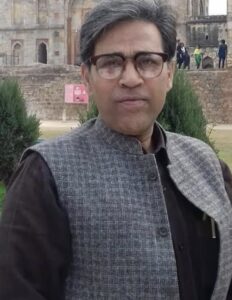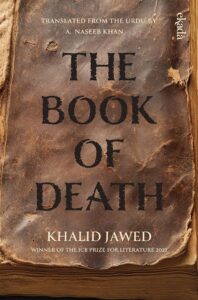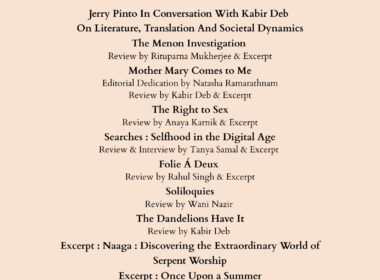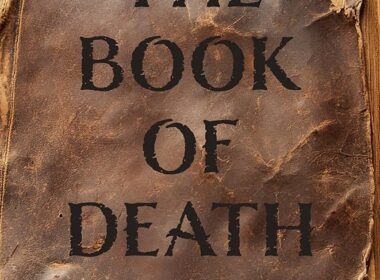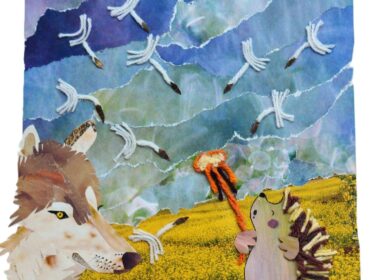The Intimate Affair Of Mortality And Disgust
Reviewer: Kabir Deb
Image Courtesy of Westland Books
George R.R. Martin puts a very important quote in Petyr Baelish’s mouth when he says, death is so terribly final, while life is full of possibilities. While both the phrases hold true to their objectives, but when it comes to people, they will either choose the former one or commit their lives to defend the latter one. Death has its own charisma and Khalid Jawed’s book The Book of Death, translated from Urdu by A. Naseeb Khan, observes death, self-harm and suicide from the perspective of a man who is flawed, helpless and wants to give a body to his own mortality. The book is a compass to identify what the end is all about, and how the process towards death isn’t vacant. Rather, only by keeping death in the forefront, one can determine if death is a beautiful occurrence or just a way to stop this life. While the latter seems to be an easy instance but the writer in this book explores its many intricacies one seldom desires to explore because of its disturbing conditioning.
The story develops in a town named Girgita Til Mas where a scientist comes across the diary of a mentally disturbed man in the ruins of a mental asylum. In the climatic turmoil of the town, the diary projects a voice which testifies against the moral compass of this real, developing world where the personal lives of people are stiffened and cuffed whereas everyone expects them to have something to say. The protagonist knows the reality and hence, makes his statements from the pages of the diary, in which everything lies on the silver lining between life and death; morality and immorality; respect and disrespect; ideals and fallen thoughts. The book might appear as a ride to a depressing territory, but the writer maintains a narrative where death is a cot to meditate. The only difference lies in how he restricts everyone from taking a route to death by making it appear a replica of life. The philosophy of Tao also believes that death is just an inverted rendition of life.
In this book, contentment is achieved by ‘not being content with anything’. It is a mathematical process where any kind of equation, if achieves no positive result, should be given a negative unit to then add a positive integer and find its positive value. In physics as well, when electricity cannot be controlled by a switch then the power of the battery should be altered on a continuous basis by adding more switches. The ‘absence of power’ in the firsthand is nullified by the ‘presence of sufficient power’, without being an integral part of the process, that can overrule the emptiness by inducing a possibility in the powerless space. Here, the protagonist is depressed of everything yet is seduced by the beauty of both hopelessness and grotesque elements. Khalid Jawed has the skill to make the rotten appear fresh. He doesn’t make you puke. Rather, by describing the ugly, he urges us to imagine what we usually ignore because they can trigger our invisible, dormant senses.
The personification of suicide as a luscious and sultry companion of the the protagonist is a clever way to observe this phenomenon as something physical. In the story, it comes whenever the protagonist wishes for a friend, a listener or simply, a presence. It never interrupts his thoughts on his own sufferings, an exploited childhood and a marriage that he considers a responsibility, and sometimes, an unbearable burden. There are expectations and his vulnerable condition cannot complement his desires. Most of us, in our own lives, stay muddled with our sufferings and when an additional element gets added, we sometimes lose ourselves. To think of that element as redundant is not abnormal. Rather, to endure its negative presence can lead us to a void, and like the protagonist, most of us think of our bodies as voids in which everything goes to not come out.
In the Sanjay Leela Bhansali film Guzaarish, we get to observe the process that makes a crippled man take a decision to end his life on his own terms with proper consent from the law. Its main fault lies in the glorification of what life can be like, only to balance the gloominess of suffering. It was needed to keep the audience happy, but even then, it was a disaster in the box office. Khalid Jawed, on the other hand, does not glorify life. He assures us that life is full of misery and its grandeur lies under the dark shadows of its dementors which arrive to put a mess before us. If we get to see life within this mess, then we are aware of our own lives. If we choose to keep it aside, then we are here to simply survive and die an ‘unbeing dead’. The book measures its readers and so, while reading it, one can feel claustrophobic, depressed and exhausted. But the writer knows that unless he makes the reader experience these effects, death will remain a mere fantasy element.
Naseeb Khan’s translation of The Book of Death flows well and does not keep the readers distant from the text. It does not read like an original text because Jawed’s Maut ki Kitaab had the voice of a mad being which the translator is able to retain in most parts but then, the language and its stylization sometimes keep the voice a little sane and devoid of disturbance. But then, this is where a translation becomes different from the original text – to unite and deviate the source and the consequence. The Book of Death portrays death with intimacy, sensitivity and sufficient disgust. Yet the last bit does not demonize the former two. A slim book of merely over a hundred page explores death by losing all bindings and tethering it to the reality of mortality and the Earth’s fragile reality.
Author
Khalid Jawed is one of the leading Urdu novelists today. He is the author of fifteen works of fiction and non-fiction, and is a recipient of the Katha Award, the Upendranath Ashk Award and the UP Urdu Academy Award. He is a professor at Jamia Millia Islamia University. Khalid Jawed was awarded the JCB Prize for Literature (2022) for the English translation The Paradise of Food of his book Ne’mat Khana.
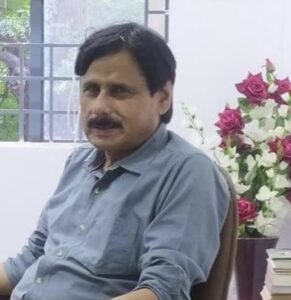
Translator
A Naseeb Khan is a bilingual poet, translator and author. Recipient of the Delhi Urdu Academy Award, his poems have featured in multiple Urdu anthologies including Rip Not the Sore and Naee Nazm Naya Safar. As a translator, he has several credits to his name, including a monograph on Moin Ahsan Jazbi, and Ghalib’s couplets included in the Evolution of Ghalib.
